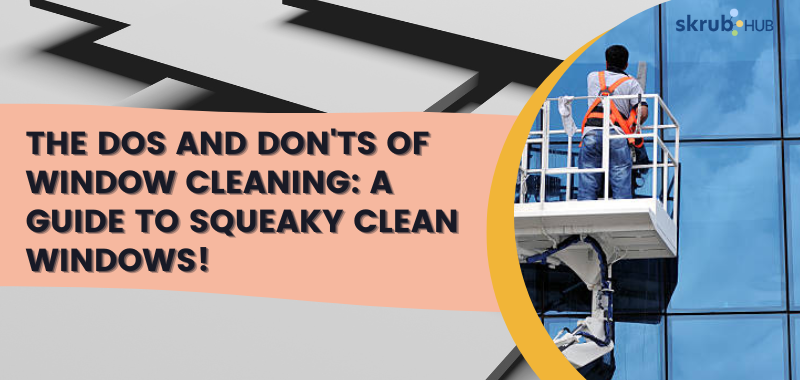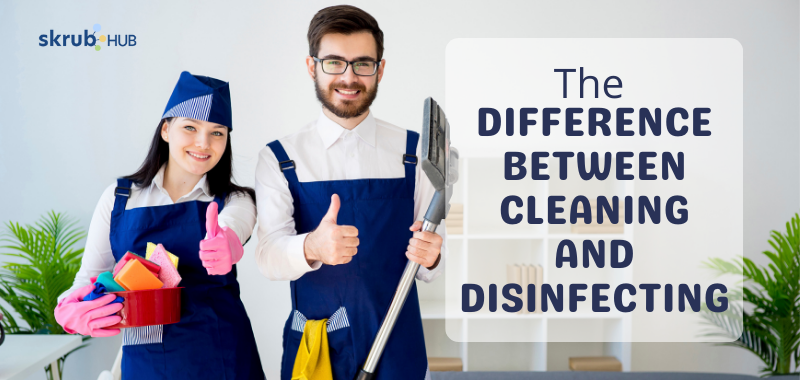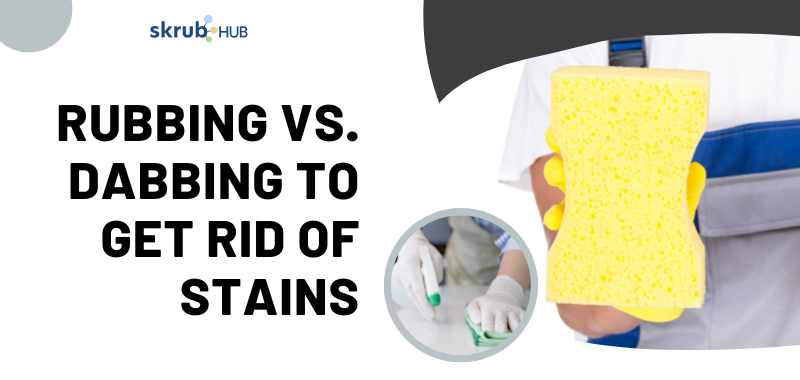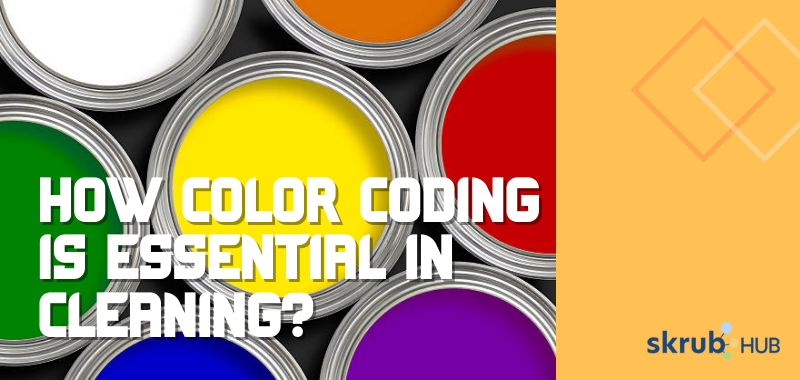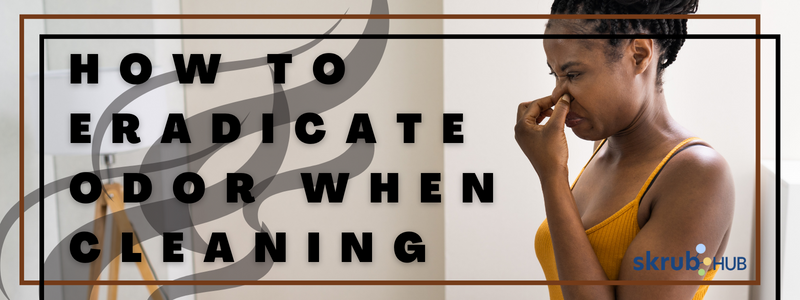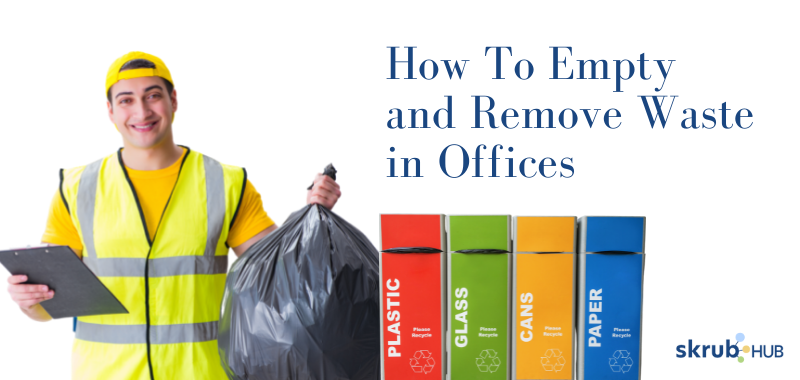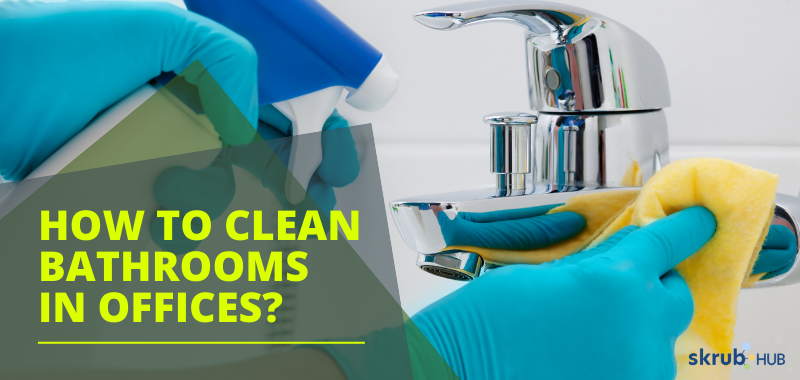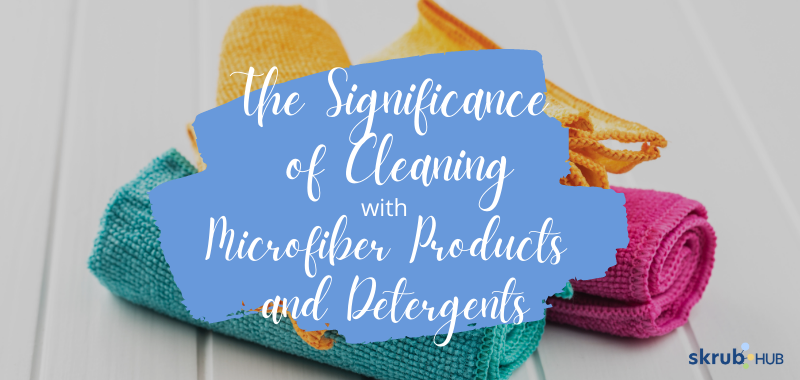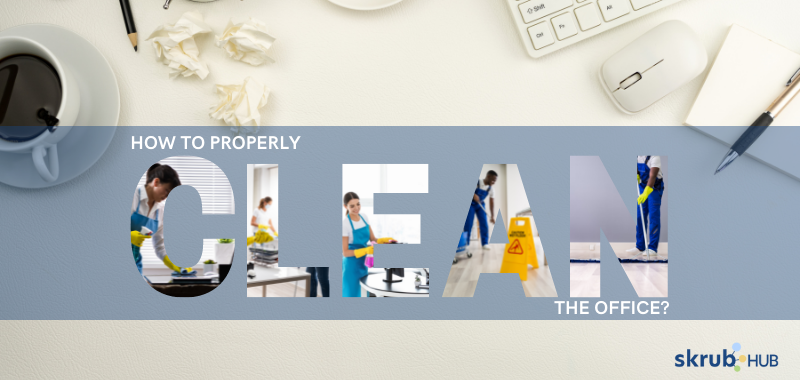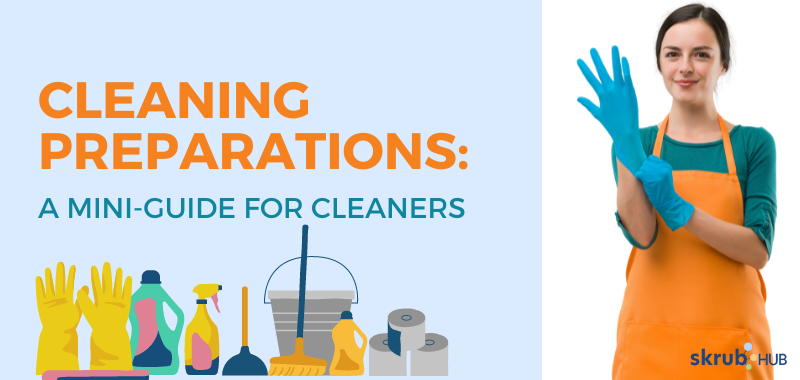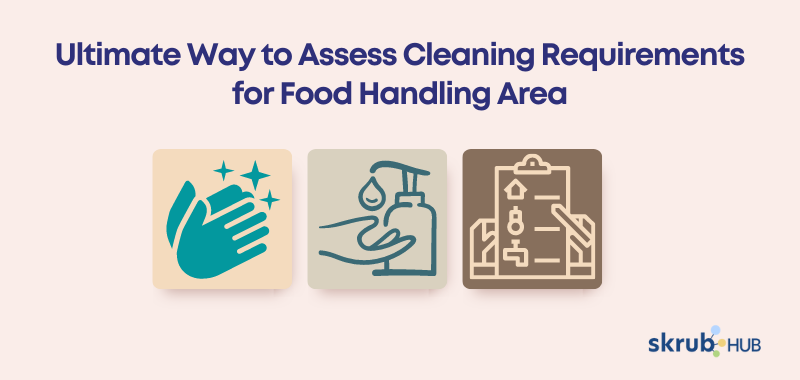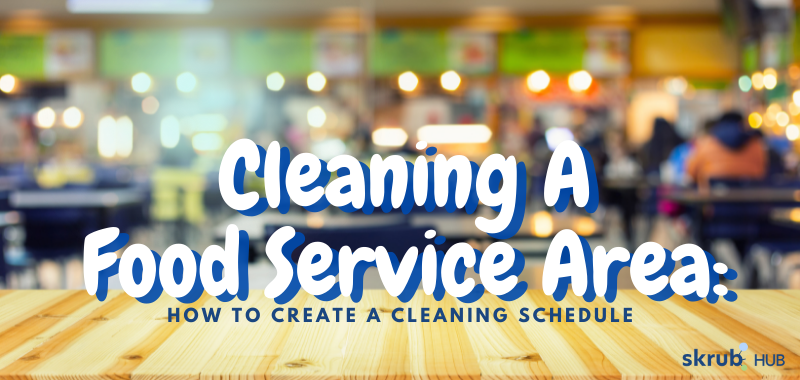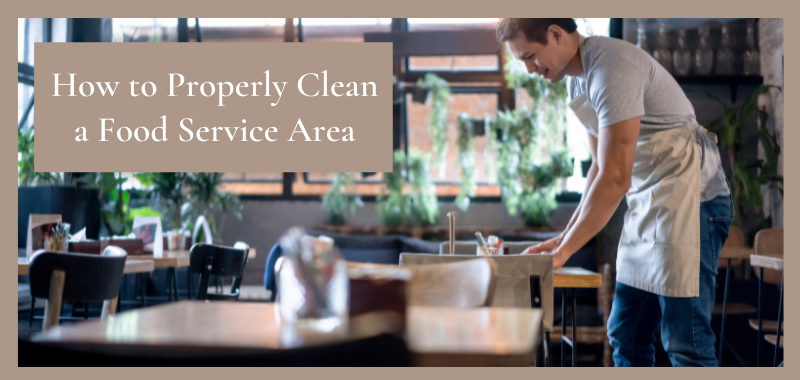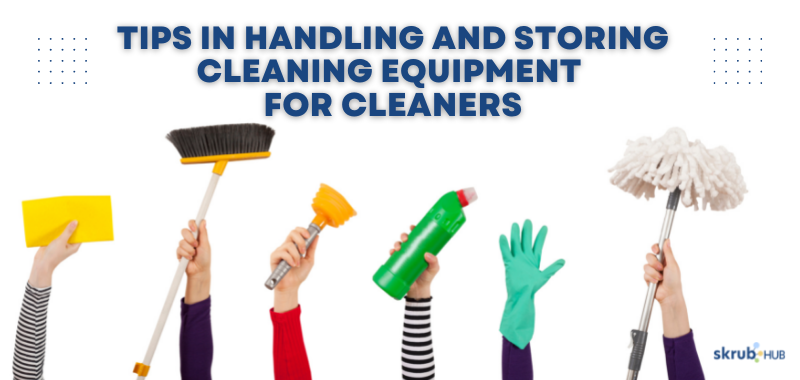
Tips in Handling and Storing Cleaning Equipment for Cleaners
Tips in Handling and Storing Cleaning Equipment and Disposing Chemical for Cleaners
Doing aftercare takes a lot of work to do. So when you think that cleaning is the hard part, you’re wrong. Regardless of how much soap and cleaning solutions are used on every cleaning equipment, they must be cleaned and maintained correctly to assure safety and quality.
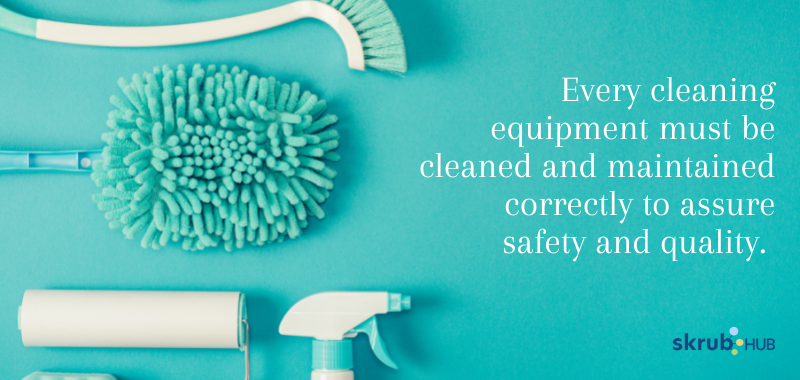
Every cleaning equipment must be cleaned and maintained correctly to assure safety and quality.
Even though it seems that specific cleaning equipment has been kept all day in a bucket with soap, pollutants and bacteria may still gather and accumulate without proper maintenance. That’s why it’s imperative to take care of every piece of cleaning equipment because they are your assets in cleaning every space on your customer’s property or establishment.
You don’t want your cleaning business ruined because of your cleaning equipment, right? Without them being cleaned and properly maintained, you won’t get to have a quality cleaning service on the next shift. And that will be detrimental to your cleaning business since clients will not want to hire you again because of that.
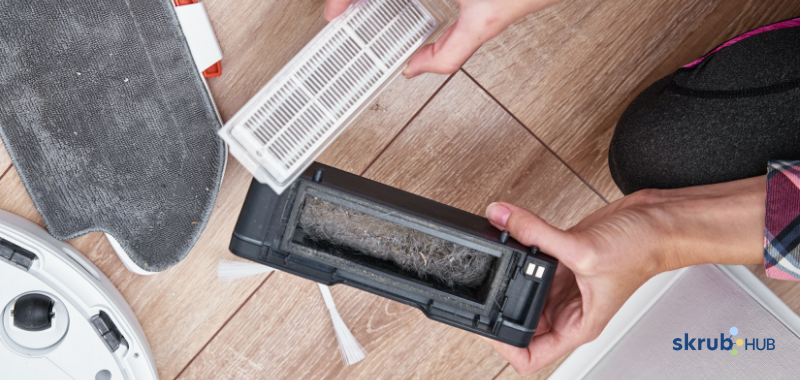
It’s imperative to take care of every piece of cleaning equipment
That’s why we come up with this guide to help your handle, clean, and store cleaning equipment so that you can prepare for the next cleaning task. So read now and learn some tips and tricks to get things done properly.
How to Clean Tools and Supplies?
Where does it begin?
To clean equipment and supplies, cleaners should be organized to keep everything safe and out of hand. That’s why proper care and maintenance always start with appropriate orientation and training to cleaners. This is an essential and critical part of the overall cleaning plan and hygiene to the cleaners.
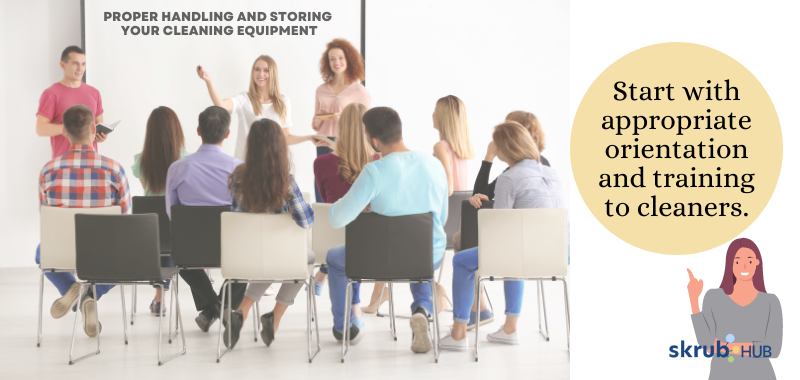
Proper care and maintenance always start with appropriate orientation and training to cleaners
It should not be taken for granted because if a cleaner doesn’t know how to clean and wrap things up after cleaning, the next cleaning service will become haywire, and the worst is that he is cleaning the area with dirty cleaning equipment. That will make things complicated because you are just making it messier instead of cleaning the area.
What equipment is to be used?
The function of each cleaning equipment influences the cleaning service program. As a result, it might affect the overall quality of the cleaning service. Therefore, each cleaning routine must be defined separately according to how these cleaning equipment is being used.
For example, a brush used to clean the sink should be cleaned and sterilized before and after every usage. A broom should also be maintained so that it will last long. You should also separate tools used in food contact surfaces and non-contact ones.
In terms of storage, you can use the colour coding method to organize this cleaning equipment in one go to be easier for you to use it the next time. This is also a straightforward option for obtaining the best way to store tools and supplies properly with utmost care.
When does it end?
Cleaning does not end after you have just cleaned the area; it ends when you have taken good care of every cleaning equipment and supply. It is a must to have an aftercare routine after every cleaning service because it will ensure that each piece of equipment will last longer to use. Cleaning tools is basically the same as cleaning any area. It will also cost you time and effort. See to it that your cleaning equipment is a friend of yours because you can’t ever clean in the first place without it.

It is a must to have an aftercare routine after every cleaning service because it will ensure that each piece of equipment will last longer to use.
Tips in Cleaning Tools and Supplies
Below are some tips and tricks to clean tools and supplies.
- Cleaning equipment and materials should be thoroughly cleaned before being stored in a safe place for safekeeping. They must also be sanitized and stored properly to ensure the quality of the cleaning service.
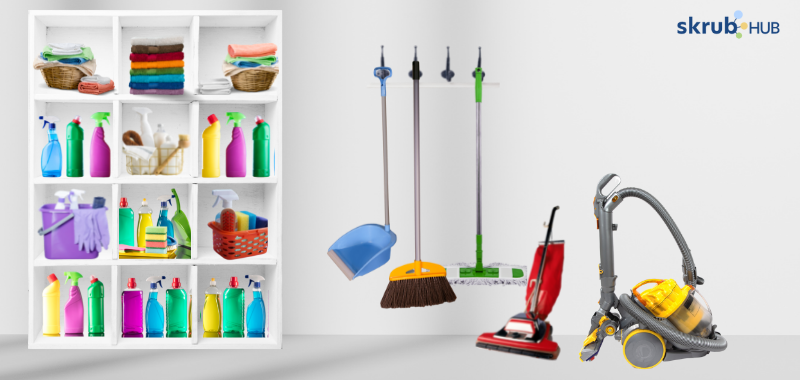
Cleaning equipment and materials should be thoroughly cleaned before being stored in a safe place for safekeeping
- Chemical substances used for cleaning and cleaning equipment must be kept secure from any food handling facility or area. The space should be well-lit so that staff and cleaners may quickly recognize them.
- Every cleaning storage should have hooks for hanging brooms and mops, a sink and drain for buckets, and a storage room specifically for chemical detergents and substances.
- Cleaning a tool should not be done in hand-washing sinks and any food preparation area. Instead, it must be done in a specific place away from these areas.
- Always air dry brooms, wiping cloths, and brushes on the hook overnight. Don’t allow them to stand on the floor.
- Remember to sanitize buckets because using them in cleaning an area makes them the dirtiest cleaning equipment in your arsenal. Air dry them and store them separately with other tools in the storage.
- Aside from cleaning and maintenance, cleaners should go further in repairing and replacing damaged cleaning tools when cleaning equipment fails; it may cause considerable downtime and operating costs. It would help if you adopted maintenance techniques to troubleshoot and monitor equipment accordingly. This will verify tools cleaning equipment if it’s functioning properly or needs a replacement.
Factors to Properly Handled, Care and Maintain Cleaning Equipment
It is very important to know why we need to properly care for and maintain every piece of cleaning equipment. Remember that it will be hard for you to offer cleaning services without cleaning equipment. You can’t ever get things done without them. Cleaning equipment is your sacred tool to fulfil clients’ wishes, and that is to get their property spot cleaned. You should need to consider major factors when doing this, and this will tell you how to do things correctly. Below are the following considerations:
- Verified methods should be in place to ensure that cleaning activities successfully sanitize cleaning equipment.
- Qualified and professional cleaners must do regular care and maintenance. They should have been trained and have the proper knowledge to do this.
- There should be a mechanism for a cleaner to verify cleaning efficacy via monitoring or testing.
- Cleaning equipment should be effective and hygienically built to assist in optimizing the elimination of food debris and contamination, reduce the danger of cross-contamination and meet safety standards.
How to Properly Dispose of Used Chemical Solutions?
The most missed or mishandled in safety assessment and inspection in the cleaning sector is the way in disposing and handling chemical solutions. These things should be prioritized since cleaning substances are considered hazardous, which may have serious repercussions. Proper disposal and handling should be undertaken to stay efficient and safeguard every cleaner. Below are some tips to guarantee that your cleaning service is not only clean but also safe:
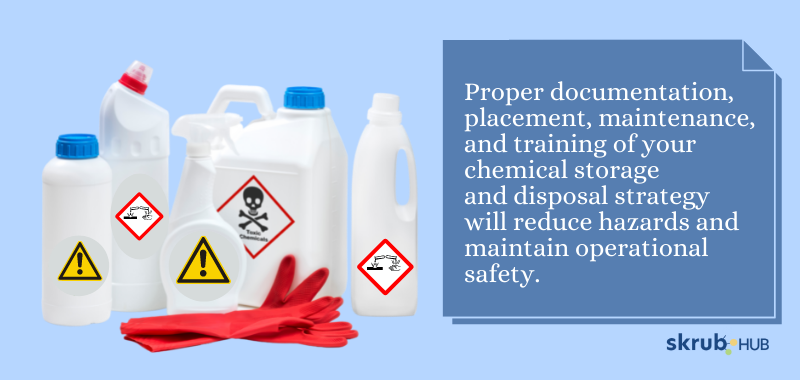
The most missed or mishandled in safety assessment and inspection in the cleaning sector is the way in disposing and handling chemical solutions.
- Never return a used chemical back to its original containers because dirt and bacteria may be transferred to the remaining unused chemical.
- Chemicals such as detergents may be poured into the drain, but some others need to be disposed of properly because they are considered hazardous to the environment. Therefore, they may need to be stored and delivered to safe disposal storage. However, you can dilute it first upon the recommendation of the product’s manual.
- Always read first the instruction manual or Safety Data Sheet (SDS) coming from the product manufacturer before disposing of chemical solutions. There might be a guide or procedure to dispose of it properly.
- Follow a comprehensive chemical safety program to guarantee appropriate handling and disposing of chemical solutions.
- Label every chemical solution to avoid health risks and improper handling.
- Keep chemical solutions in a cool, clean, and dry place. Note that some chemicals may bring harmful effects when exposed to a strong temperature.
- Proper documentation, placement, maintenance, and training of your chemical storage and disposal strategy will reduce hazards and maintain operational safety.
Final Takeaway
Ensuring that every cleaning equipment has been handled and stored properly means that you are ready for the following shift of cleaning service to be done next. In addition, once you know that every cleaning equipment is in its operating condition, it will give you the confidence that it will do the job well next time. Also, this will ensure that there are no safety or hygiene issues for you and other people.
Cleaning equipment maintenance is critical because if your cleaning equipment is improperly kept, the bacteria and pathogens you’re seeking to eradicate can grow directly on or in them. It is essential always to inspect, clean, and properly keep them. Dispose of waste chemicals properly following safety regulations and always wear gloves. It might extend some of your time but doing this is worth it because this will show how good and dependable you are as a cleaner.
Related Post
The dos and don’ts of window cleaning: A guide to squeaky clean windows! A window is where you look out...
The difference between cleaning and disinfecting As cleaners, you always have to ensure you leave the area clean. Usually, you...
Cleaning processes vary depending on your preference. However, there are recommended processes that can be beneficial for you to do your...
How to remove pet soils from the carpet? Your home is where you find comfort and solace every day and whenever...
How to reach high fixtures and drapery for cleaning? – A quick solution to high-placed problems! A tidy house is...
How Color Coding is Essential in Cleaning People may not understand the significance of colours in the world. They might...
How to Eradicate Odor when Cleaning Scamming is also present in the cleaning world. Sometimes, you may feel like the...
How To Empty and Remove Waste in Offices While cleaning is an essential practice to follow, waste disposal is as...
How To Clean Bathrooms in Offices The main purpose of cleaning is to provide a safe and hygienic space for...
The Significance of Cleaning with Microfiber Products and Detergents Cleaning is of utmost essential, especially in offices where numerous people are...
How to Properly Clean the Office With the proper preparations, you are now equipped to face the cleaning properly. You will...
How to Clean Effectively In A Short Amount of Time? Cleaning varies on personal preference. Some may think that cleaning is...
Cleaning Preparations: A Mini-Guide for Cleaners It is always essential for you to prepare when cleaning an office building. By being...
How Much Should I Charge To Clean A House? Planning on the pricing of package rates and hourly rates for cleaning...
Tips in Handling and Storing Cleaning Equipment and Disposing Chemical for Cleaners Doing aftercare takes a lot of work to...
Ultimate Way to Assess Cleaning Requirements for Food Handling Area Having the food handling area clean is very significant in...
Cleaning a Food Service Area: How to Create a Cleaning Schedule Cleaning is an important aspect of maintaining a food service...
How to Properly Clean a Food Service Area Cleaners in a food service area are often seen cleaning the premises constantly....


